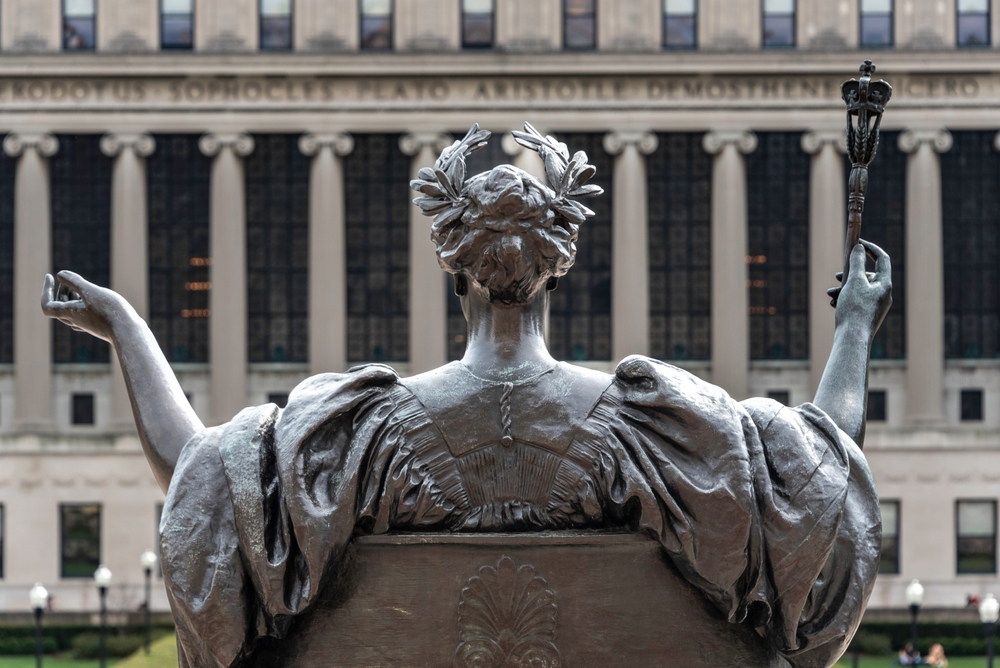October 7th marks the one-year anniversary of Hamas’ attacks against Israeli civilians in which 1,200 people were killed and hundreds taken hostage.
Members of Columbia University’s community, which drew widespread attention to itself throughout the past year due to the Gaza solidarity encampment and the resulting mass student arrests, commemorated the anniversary amongst conflict between Pro-Israel and Pro-Palestine activists.
The University approved an installation on the southwest lawn set up by the Columbia Jewish & Israeli Community displaying images of those killed and abducted. Sahar Paz, the Vice-President of Students Supporting Israel (SSI) and one of the project’s organizers, said he was “grateful” to Columbia for the opportunity.
Paz, who was wearing a t-shirt stating “F**k Hamas, I Stand With Israel,” said the purpose of the installation was “to commemorate.”
“This was an incredibly difficult and polarizing year. I believe I can speak for many Jews when I say we have felt alone,” said Hana Cohen, a student volunteer working on the installation.
“These stories are close to us; we know these people,” said Danielle Rech, another volunteer, gesturing at a poster of Almog Sarusi, “a friend of a friend,” who was killed in the attacks. Another friend of hers, Omar Shentov (23), was taken hostage.
Columbia University Apartheid Divest (CUAD), the Pro-Palestine student organization responsible for the Gaza encampment, called for a university-wide walkout and protest at 11:45 am.
“Them being out here on October 7th doesn’t show support for Palestine, it shows hatred for the state of Israel,” commented Paz, who highlighted that Israel didn’t officially respond to the attacks “until the following day.”
One Pro-Palestine protester, who insisted on remaining anonymous for fear of retaliation from the University, stated that the initiative was “irrelevant to [her] needing to take a stance against genocide.”
The Instagram account for CUAD instructed protesters to wear masks to be “covered and protected from surveillance” in a recent post. It also advised them to avoid swiping their university IDs upon campus entrance and that they may be able to avoid identifying themselves to public safety officers by walking away – both violations of Columbia’s Rules of Conduct.
“If they were proud of the group they’re representing, they would not be afraid to give their names and show their faces,” said Paz.
We made every effort to engage with Pro-Palestine protestors on the record but was turned down by a minimum of ten individuals.


